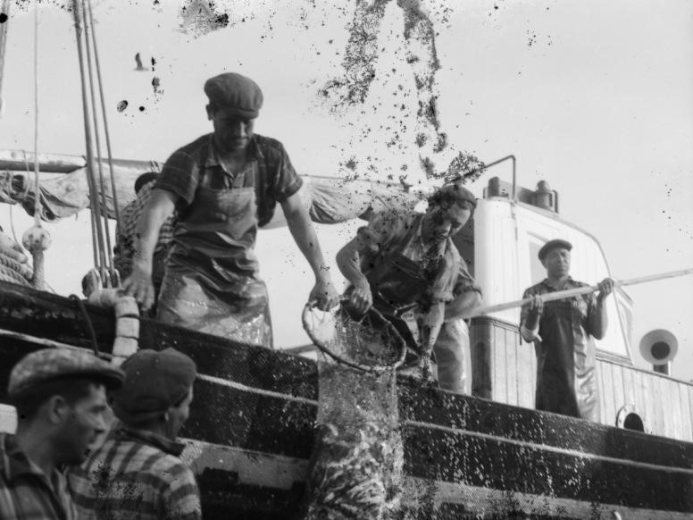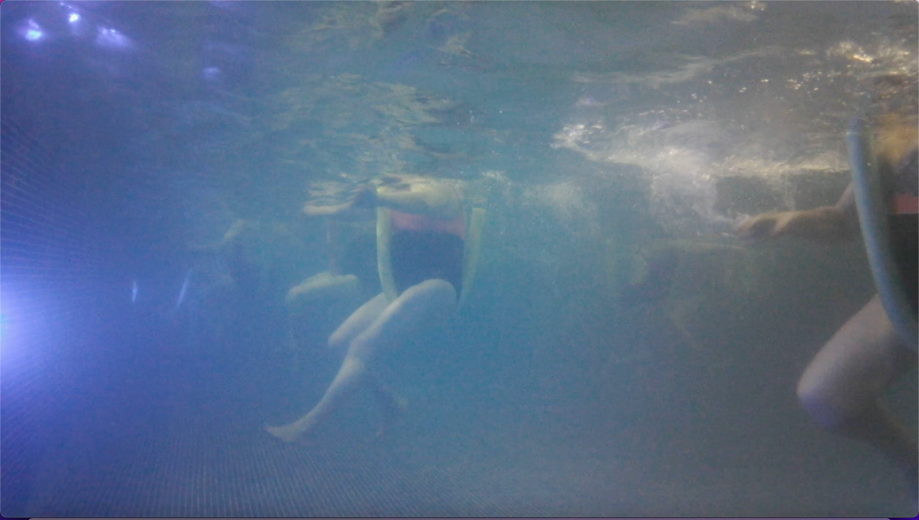
LEVA LEVA
Litany of Portuguese fishermen
With its new project focusing on the songs of fishermen in Portugal, the platform FLEE attempts to bring together an in-depth anthropological research together with a contemporary hybrid and artistic reflection on an important facet of Portuguese social and cultural history.
Using work songs from the 1940s, 60s and 80s recorded around the Algarve region, through these melodies the project attempts to document the history of these fishermen, the nature of their hardship and often exploitative conditions as well as their progressive encounter with important economic and political changes affecting the country in the 1970s.
Further than looking at the fishermen directly, the project also investigates the birth of ethnomusicology in the country through the work of French ethnomusicologist Michel Giacometti, in a period when the country gradually started “discovering itself“ and its regional cultures in a reflective manner.
To carry out this ambitious work, the collective will publish a book and release an LP. The latter will present original archive recordings of fishermen’s songs as well as revisited versions by contemporary artists and music producers. In parallel, the book will include various essays, interviews, archive photographs, as well as two art commissions, looking at fishermen in Portugal through an original perspective. This particular object will be accompanied with a series of talks, performances and an installation presented at maat.
13/07–31/07/2022: Installation "Esforço Lúdico"
15/07/2022: Book launch and talk. Learn more
16/07/2022: Concert. Learn more
This is a programme developed by FLEE with the support of the French Institute in Portugal.
Esforço Lúdico
An installation by Alan Strani
For centuries, the economy of the Portuguese region of Algarve relied on fishery. In a town like Portimão, most of the men sold their labour power as fishermen on dangerous trawlers for a pittance, while women were exploited in fish canning factories, with little rights. In this context, the society’s cultural matrix often gravitated around physical effort and suffering. With the emergence of mass tourism in the late 70s, the coastal region of Algarve changed abruptly, and cities like Portimão saw the rapid appearance of a completely new economy: the service industry. In the ocean waters, fishermen pulling their nets became rapidly replaced by tourists carrying out large aquagym group sessions.
Exploring the notion of collective memory, Esforço Lúdico [Recreational Effort] invites participants of an aquagym session in Portimão to create a choreography on fishermen work songs recorded on a boat in 1962 by ethnomusicologist Michel Giacometti. In a region where suffering has been the driving force of the economy for years, Alan Strani’s installation questions: what happens when, in a few years, widespread entertainment takes over through mass tourism? How can the notion of effort be conceived as a chosen playful activity when it has been an endured action for years? This is the anomaly that this transmedia work attempts to explore.
FLEE is an independent curatorial and art platform dedicated to documenting and enhancing hybrid cultures, founded by Alan Marzo, Olivier Duport and Carl Åhnebrink. As an interdisciplinary practice, the entity functions as a record label, publishing house and exhibition producer. Creatively exploring and emphasising the outlines of globalisation from a historical perspective, FLEE focuses on shedding the light on subjectively selected cultural phenomena, while making them interact with contemporary artistic approaches.
Navigating between different means of expression, Alan Strani's practice crystallises around works of a transdisciplinary, transmedia and collective nature. Defending a fluid approach, where the essence of the message is favoured over the selected medium, the Italian-Swiss artist likes to use the symbolic and evocative power of different materials and environments, for example, by setting sculptures in motion through an audiovisual mapping device. Exploring different subjects such as collective memory or interpersonal relationships in the digital age, this Paris-based multimedia craftsman also expresses himself through the production of installations, as well as music and videos.

